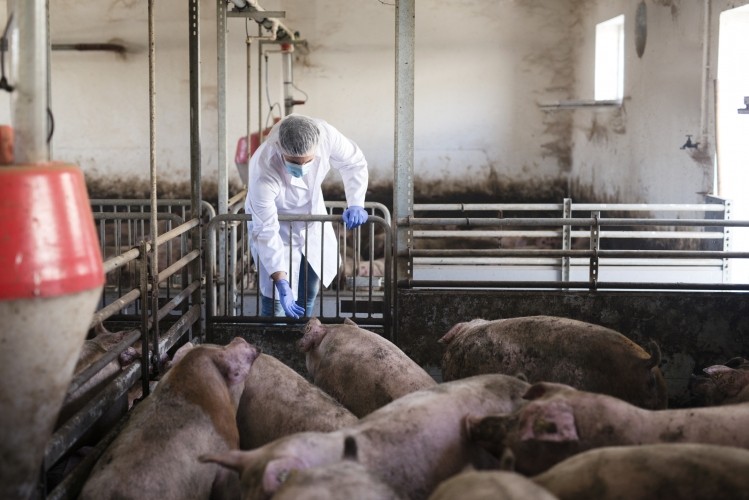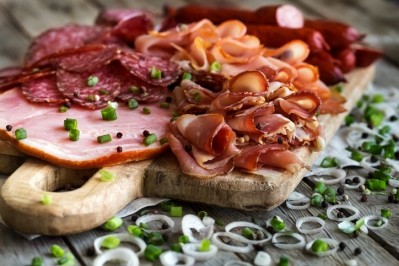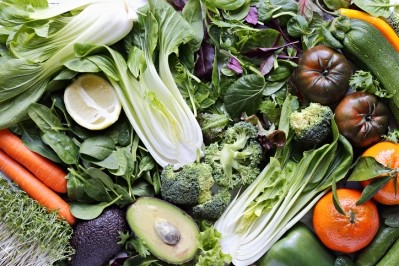UK urged to match EU ban on meat treated with antibiotics

The Alliance to Save our Antibiotics is calling on the UK government to match the EU ban of imported meat treated with antibiotics for growth promotion and the use of preventative antibiotics in domestic livestock.
The group, whose members span the medical, health, agricultural, environmental, consumer and animal welfare sectors across Europe, is concerned pressure could be put on UK farmers to farm more intensively after its departure from the EU. It wants the UK to take a strong stance against the overuse of farm antibiotics to protect public health and fight the global rise of antibiotic resistance.
A new report by the group claimed the US, Australia, New Zealand and Canada, which are all in trade negotiations with the UK, give antibiotics to livestock to make them grow faster, a practice which has been illegal across the EU since 2006. In 2022, the EU will ban imports of meat and dairy produced in this way, but the UK government has not clearly committed to implementing the ban, the report said.
The US also uses the antibiotic carbadox as a growth promoter in pigs, the report revealed, which is completely banned in Europe because it has been shown to be carcinogenic in some animals. Several other antibiotics used as growth promoters in the US, Australia and New Zealand are no longer permitted to be used in British or European livestock in any form.
Overall, farm antibiotic use per animal is about five times higher in the US and Canada compared with the UK, with use in US cattle being about seven times higher, the report said.
British farm antibiotic use fell by about 50% between 2014 and 2018, partly due to a variety of voluntary industry initiatives, the report noted. But recently published data for 2019 showed a 5% increase in use.
The report’s author Cóilín Nunan said: “Any new trade deals must not undermine British standards and threaten public health by allowing cheap meat and dairy produced with antibiotic growth promoters into the UK.
“Farm antibiotic use is falling in Europe and in 2022 the EU will ban all preventative antibiotic mass medication in its livestock, which is a huge step forward. The UK government should commit to implementing the same ban, as relying on voluntary action is not a sustainable approach for the long term. It should also ensure that trade deals set high standards for imports to protect human health and avoid undercutting British standards.”
If more cheap meat is imported from these countries, he added, UK farmers may come under commercial pressure and be tempted to increase their own antibiotic use in an attempt to minimise production costs.
'Completely irresponsible' to allow imports of animals treated with banned antibiotics
A separate report from the Sustainable Food Trust also warned that US meat produced with banned drugs would threaten the health of millions of British people.
Its report claimed that US cattle, pig, chicken and turkey farms routinely use four antibiotics that have been banned in the UK for all purposes, as well as the beta-agonist, ractopamine, not permitted in the UK on food safety grounds.
In a letter to Secretary of State for the Environment, George Eustice, SFT policy director and author of the report, Richard Young said it would be "completely irresponsible" for the government to allow the importation of animals treated with banned antibiotics.
“The continuous daily use of antibiotics at growth-promoting or sub-therapeutic doses, is far more likely to result in the development of antibiotic resistance than a short treatment with an antibiotic at full therapeutic levels, if and when disease occurs.
“UK farmers have made major strides in recent years to reduce their use of antibiotics and play their part in helping to hold back the rise of untreatable infections due to antibiotic resistance. Allowing the importation of meat produced in ways not allowed here would be a major slap in the face for British farmers and a seriously backward step in the fight against antimicrobial resistance.”
A UK government spokesperson said: “This government has been clear it will not sign a trade deal that will compromise on our high environmental protection, animal welfare and food standards, and claims to the contrary are unhelpful scaremongering. We are a world leader in these areas and that will not change.
“Chlorinated chicken and hormone injected beef are not permitted for import into the UK. This will be retained through the EU Withdrawal Act and enshrined in UK law at the end of the transition period.
“The government is focused on getting trade deals that protect and advance the interests of our farmers and consumers. If a deal isn’t the right one, we will walk away.”

























